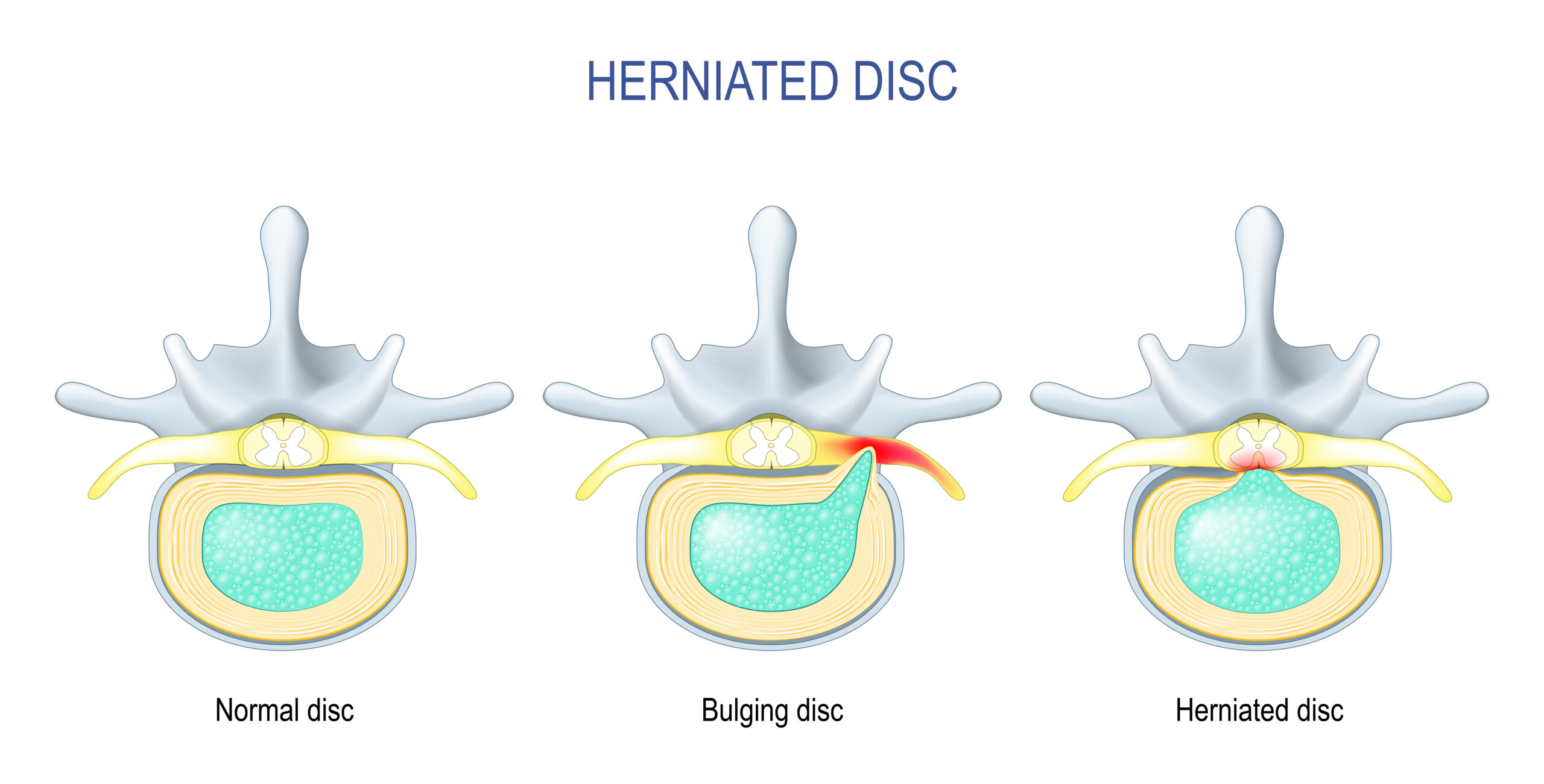A herniated disc, also known as a slipped or ruptured disc, is a common injury that can occur as a result of an auto accident. A herniated disc occurs when the soft, jelly-like center of a spinal disc protrudes through a tear in the outer layer, putting pressure on nearby nerves and causing pain, weakness, or numbness.
Auto accidents can cause herniated discs in several ways. One of the most common is through sudden impact, such as a collision. The force of the impact can cause the spine to jolt, and this can lead to the disc’s outer layer to tear or rupture. The inner material of the disc may then protrude through this tear, causing a herniated disc.
Another way an auto accident can cause a herniated disc is through whiplash. Whiplash occurs when the head and neck are suddenly jerked forward and then backward, causing the spine to move out of its normal alignment. This sudden movement can cause the disc to slip or herniate.
The severity of an auto accident can also determine whether a herniated disc occurs. High-speed collisions or accidents with multiple vehicles can put more pressure on the spine, increasing the likelihood of a herniated disc.
Symptoms of a herniated disc can vary depending on the location and severity of the injury. Common symptoms include back or neck pain, numbness or tingling in the arms or legs, muscle weakness, and difficulty with daily activities such as walking or standing.
Treatment for a herniated disc may include rest, physical therapy, pain management, or surgery. In some cases, the injury may heal on its own with time and proper care.
Overall, an auto accident can cause a herniated disc through sudden impact, whiplash, or the severity of the collision. If you experience symptoms of a herniated disc after an auto accident, it’s important to seek medical attention right away to prevent further injury and ensure proper treatment.
